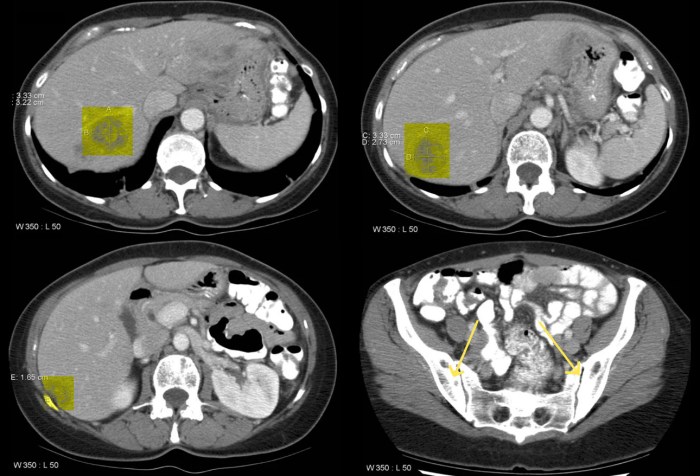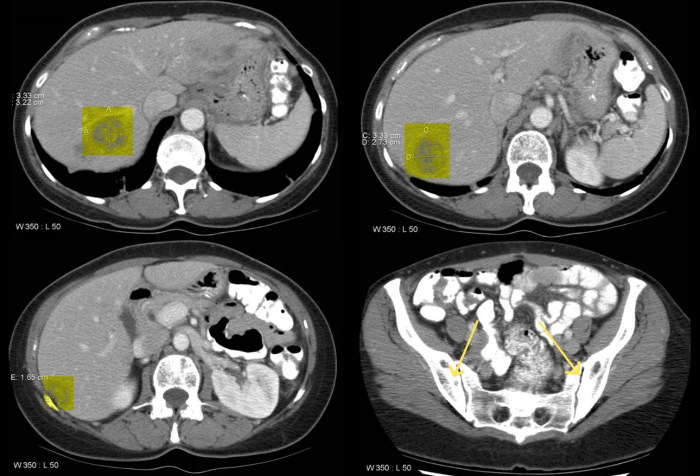i tested positive for covid now what? This is a crucial moment, demanding careful consideration and practical steps. Navigating a COVID-19 diagnosis requires understanding the situation, taking immediate actions, managing symptoms, seeking medical advice, prioritizing self-care, and staying informed. We’ll explore all these aspects to equip you with the knowledge and resources needed to handle this situation effectively.
This guide offers a comprehensive overview of the steps to take after a positive COVID-19 test. From understanding the symptoms and severity to managing isolation, accessing resources, and supporting others, we aim to empower you with the information you need during this time. We will delve into the practical details of each step, providing actionable advice and guidance.
Understanding the Situation: I Tested Positive For Covid Now What
Testing positive for COVID-19 means that a laboratory test has detected the presence of the SARS-CoV-2 virus in your body. This indicates an active infection, potentially contagious, and warrants appropriate precautions. It’s important to understand the nuances of this diagnosis, including typical symptoms, possible causes, and the spectrum of severity.The information presented here is for educational purposes only and should not be considered medical advice.
Always consult with a healthcare professional for any health concerns or before making any decisions related to your health or treatment.
So, I tested positive for COVID. Now what? First, prioritize rest and hydration. While you’re recovering, you might be thinking about other things, like, say, sunglasses. Does the color of your shades actually matter?
Well, I’m not an expert, but I did some digging and found this article really interesting on the topic of sunglasses does color matter. Regardless of the lens tint, focus on getting better, and remember to follow your doctor’s advice.
Meaning of a Positive COVID-19 Test
A positive COVID-19 test result signifies that you have been infected with the SARS-CoV-2 virus, which causes COVID-19. This means your body is actively fighting the virus, and you may be contagious to others. Understanding the nature of this infection is crucial for taking necessary steps to protect yourself and others.
Typical Symptoms of COVID-19
The most common symptoms associated with a positive COVID-19 test include fever, cough, sore throat, fatigue, muscle aches, headache, and loss of taste or smell. However, not everyone experiences all these symptoms, and the severity can vary significantly. Some individuals may only have mild symptoms, while others may develop more severe complications. The presentation of symptoms can also be different between individuals and can be influenced by various factors such as age, underlying health conditions, and the specific strain of the virus.
Possible Reasons for a Positive COVID-19 Test
Several factors can contribute to a positive COVID-19 test result. Exposure to an infected individual is the most common cause. Direct contact, such as close proximity or sharing personal items, can lead to transmission. Airborne transmission through shared spaces can also facilitate the spread of the virus. Furthermore, individuals may test positive even if they don’t exhibit noticeable symptoms, highlighting the potential for asymptomatic transmission.
Comparing COVID-19 Symptoms with Other Common Illnesses
Distinguishing COVID-19 from other common illnesses like the flu or a cold can sometimes be challenging. While some symptoms like fever, cough, and fatigue may overlap, other symptoms like loss of taste or smell are more specific to COVID-19. Accurate diagnosis requires careful evaluation of the full range of symptoms and potential exposure history. Consulting a medical professional can help in making an accurate diagnosis.
Severity Levels of COVID-19, I tested positive for covid now what
| Severity Level | Symptoms | Considerations |
|---|---|---|
| Mild | Mild fever, fatigue, and body aches. Cough may be present, but is typically not severe. | Usually resolves within a few weeks with supportive care. |
| Moderate | Higher fever, more intense cough, shortness of breath, and possible chest pain. Symptoms may persist for several weeks. | May require over-the-counter medications or, in some cases, supplemental oxygen or hospitalization. |
| Severe | Severe shortness of breath, difficulty breathing, and rapid heart rate. The individual may require intensive care and respiratory support. | Requires immediate medical attention and hospitalization. |
This table provides a general overview. The severity of COVID-19 can vary significantly among individuals, and the presence or absence of certain symptoms doesn’t necessarily dictate the severity of the infection. Prompt medical attention is crucial for all individuals experiencing severe or concerning symptoms.
Immediate Actions and Next Steps

The moment you receive a positive COVID-19 test result, a cascade of actions unfolds. This phase involves immediate self-care, protecting others, and seeking appropriate support. Understanding these steps is crucial for managing the infection effectively and minimizing its spread.Following a positive test, your immediate actions center on isolating yourself from others to prevent further transmission and on notifying close contacts to enable their own proactive measures.
This proactive approach is key to containing the virus’s spread within your community.
Immediate Self-Isolation
Effective isolation minimizes the risk of infecting others. This involves limiting contact with household members and other individuals. The duration of isolation typically aligns with public health guidelines, usually ranging from 5 to 10 days, depending on symptoms and specific recommendations from local health authorities. Strict adherence to isolation protocols is essential to prevent the spread of the virus.
Notifying Close Contacts
Promptly notifying close contacts is a vital step in preventing further community transmission. Close contacts are individuals who have had prolonged, close interactions with the infected person, increasing their risk of exposure. This notification allows those in close contact to take necessary precautions, such as self-monitoring for symptoms and potentially undergoing testing.
- Contact tracing involves identifying and contacting individuals who may have been exposed to the virus. This process helps limit the spread of the infection and enables effective public health interventions.
Contact Tracing Resources
Contact tracing programs play a crucial role in mitigating the spread of COVID-19. These programs help identify and notify individuals who have had close contact with an infected person. Local health departments often have contact tracing resources readily available to assist with this process.
So, I tested positive for COVID. Now what? Rest is key, of course, but also monitoring for any unusual symptoms is important. One thing to watch out for is low blood pressure, which can sometimes accompany COVID. Understanding the common signs of low blood pressure, like dizziness or lightheadedness, can help you stay on top of your health.
Check out this helpful article for more information on what are common low blood pressure symptoms. Thankfully, I’m feeling pretty good so far, but it’s always wise to be proactive in your health journey, especially when dealing with a virus like this.
- Various public health agencies and websites provide information on local contact tracing programs. Accessing these resources allows individuals to promptly receive necessary guidance and support during this process.
Accessing Local Health Guidelines
Understanding local health guidelines is crucial for navigating the specific requirements and recommendations in your area. These guidelines may vary based on factors like the local transmission rate, the prevalence of specific COVID-19 variants, and the resources available in your community.
- Local health departments and government websites often provide up-to-date information on local health guidelines. Consulting these resources ensures you are adhering to the most relevant recommendations for your region.
Managing Symptoms
Navigating a COVID-19 infection can be challenging, but understanding how to manage symptoms effectively can significantly improve your comfort and recovery. This section focuses on common symptoms, over-the-counter remedies, and crucial aspects of self-care during this period. Proper symptom management allows for a more comfortable and efficient recovery.Managing COVID-19 symptoms often involves a combination of over-the-counter medications, adequate hydration, and rest.
Understanding which medications might help alleviate specific symptoms and recognizing the importance of overall well-being are key components of effective self-care. A proactive approach can greatly reduce discomfort and promote a faster recovery.
Common COVID-19 Symptoms
Various symptoms can manifest during a COVID-19 infection. These symptoms can range from mild to severe, and their intensity and duration can vary significantly between individuals. Recognizing these symptoms allows for proactive management and informed decision-making.
- Fever: A high body temperature is a common symptom, often accompanied by chills and sweats. Monitoring your temperature and maintaining a comfortable environment can help alleviate discomfort.
- Cough: A persistent cough, ranging from dry to productive, is another frequent symptom. Staying hydrated and using a humidifier can help manage cough symptoms.
- Sore Throat: Sore throat discomfort can range from mild scratchiness to severe pain. Warm liquids, throat lozenges, and gargling with salt water can offer relief.
- Headache: Headaches can range from mild to severe, often accompanied by fatigue and muscle aches. Rest, hydration, and over-the-counter pain relievers can help.
- Muscle Aches: Muscle aches and pains are frequently reported, often in conjunction with fatigue and headache. Proper hydration and rest are essential for managing these symptoms.
- Fatigue: Extreme tiredness is a common complaint, often impacting daily activities. Rest, adequate hydration, and managing other symptoms can help improve energy levels.
Over-the-Counter Medications for Symptom Relief
Many over-the-counter medications can help alleviate COVID-19 symptoms. Choosing the right medication depends on the specific symptoms being experienced.
| Medication | Symptom Relief | Potential Side Effects |
|---|---|---|
| Acetaminophen (e.g., Tylenol) | Fever, headache, muscle aches | Liver damage with excessive use, allergic reactions in some individuals |
| Ibuprofen (e.g., Advil, Motrin) | Fever, headache, muscle aches, inflammation | Gastrointestinal upset, allergic reactions, potential kidney problems with prolonged use |
| Decongestants (e.g., pseudoephedrine) | Nasal congestion | Anxiety, insomnia, high blood pressure in some individuals |
| Cough suppressants (e.g., dextromethorphan) | Cough | Drowsiness, dizziness, allergic reactions |
| Throat lozenges | Sore throat | Minimal side effects; some may contain menthol or other ingredients that may cause irritation in some individuals |
Importance of Hydration and Rest
Adequate hydration and rest are crucial during a COVID-19 infection. These are not just secondary factors but integral to your body’s ability to fight off the infection and recover.
- Hydration: Drinking plenty of fluids helps to thin mucus, reduce fatigue, and support overall bodily functions. Water, clear broths, and electrolyte drinks are excellent choices.
- Rest: Getting sufficient rest allows your body to focus its energy on fighting the infection. Prioritizing sleep and avoiding strenuous activities are key.
Managing Fatigue
Managing fatigue is a significant aspect of recovery. It’s often a symptom in itself and can be exacerbated by other symptoms.
- Prioritize Sleep: Aim for 7-9 hours of quality sleep each night. Create a relaxing bedtime routine to promote better sleep.
- Schedule Breaks: Break up your day with short breaks to avoid overexertion. Even short periods of rest can help prevent fatigue from worsening.
- Listen to Your Body: Pay attention to your energy levels and adjust your activities accordingly. Don’t push yourself too hard if you feel tired.
Seeking Medical Advice
Navigating a COVID-19 diagnosis can be daunting. Understanding when and how to seek medical attention is crucial for managing the illness effectively and preventing potential complications. This section will provide guidance on recognizing when medical intervention is necessary, and the steps involved in getting the care you need.Seeking medical advice is an essential part of managing a COVID-19 diagnosis.
So, I tested positive for COVID. Now what? First, prioritize rest and staying hydrated. And if you use a CPAP machine, maintaining a dry environment for your tubing is crucial for comfort and preventing further complications. Check out these tips on how to avoid moisture in cpap tubing to keep things running smoothly.
Taking care of yourself during this time is key, so remember to focus on rest and good habits.
It’s not a sign of weakness but a proactive measure to ensure your well-being and recovery. By understanding the signs and symptoms that require immediate attention, you can make informed decisions and access appropriate care.
When to Seek Medical Attention
Early intervention is key in managing COVID-19. While many individuals experience mild symptoms that resolve on their own, some cases require medical intervention. Factors such as pre-existing conditions, age, and the severity of symptoms influence the need for professional medical advice. It is vital to monitor your symptoms and seek medical attention if you experience a worsening condition.
Signs and Symptoms Warranting Immediate Medical Care
Certain symptoms indicate a need for immediate medical attention. These symptoms can signal more serious complications. Prompt medical intervention is essential to prevent the progression of these conditions.
- Difficulty breathing or shortness of breath:
- Persistent chest pain or pressure:
- Sudden confusion or inability to wake up:
- Severe or persistent pain in the abdomen:
- New onset of severe headache or neurological symptoms:
- Bluish or gray coloring of the skin or lips:
- Sudden dizziness or fainting:
- Persistent, severe pain in the neck or jaw:
- Sudden onset of weakness or numbness in an extremity:
Potential Complications of COVID-19
COVID-19 can lead to a range of complications, varying in severity. Understanding these potential issues can help individuals make informed decisions regarding medical care.
- Acute respiratory distress syndrome (ARDS): This severe lung condition can lead to fluid buildup in the lungs, impairing breathing. Patients may experience shortness of breath, coughing, and chest pain.
- Myocarditis and Pericarditis: These conditions involve inflammation of the heart muscle (myocarditis) or the lining of the heart (pericarditis). Symptoms can include chest pain, palpitations, and shortness of breath.
- Blood clots (Thromboembolism): COVID-19 can increase the risk of blood clots, which can travel to the lungs or other parts of the body. Symptoms may include chest pain, shortness of breath, and swelling in the legs or arms.
- Long COVID: Some individuals experience lingering symptoms for weeks or months after the initial infection. These symptoms can vary greatly, impacting daily life and well-being. Common complaints include fatigue, cognitive dysfunction, and persistent respiratory issues.
Scheduling a Doctor’s Appointment
Scheduling a virtual or in-person appointment with a medical professional is a straightforward process. Different healthcare providers offer various appointment scheduling options.
- Online scheduling: Many healthcare providers offer online scheduling tools on their websites, allowing you to book appointments conveniently.
- Phone calls: Contacting the healthcare provider’s office by phone is another common method for scheduling appointments.
- In-person visits: In some cases, in-person visits are necessary for physical examinations or specialized consultations.
Types of Medical Professionals
Various medical professionals can provide guidance for COVID-19. Their expertise and specializations determine the type of care they can offer.
- Primary Care Physician: Your primary care physician can assess your overall health and provide guidance for managing COVID-19 symptoms.
- Pulmonologist: A pulmonologist specializes in lung health and can provide care for individuals experiencing respiratory complications.
- Cardiologist: A cardiologist specializes in heart conditions and can evaluate and manage potential cardiac complications from COVID-19.
- Infectious Disease Specialist: Infectious disease specialists are trained in managing infectious diseases, including COVID-19, and can provide specialized care.
Self-Care and Wellbeing

Navigating a COVID-19 diagnosis can be emotionally and physically challenging. Taking proactive steps to prioritize self-care is crucial for managing the stress and anxiety associated with the illness and isolation. This section focuses on strategies for maintaining mental and physical well-being during this time.Prioritizing self-care during a COVID-19 diagnosis isn’t just about feeling better; it’s about empowering yourself to manage the illness and its associated effects more effectively.
A holistic approach to well-being, encompassing physical health, emotional regulation, and social connection, is vital for a smoother recovery.
Importance of Self-Care
Self-care during a COVID-19 diagnosis is paramount. It involves actively attending to your physical, emotional, and mental needs to promote healing and resilience. This includes proper nutrition, adequate rest, stress reduction techniques, and maintaining a healthy lifestyle. By prioritizing self-care, you create a supportive environment for your body to fight off the virus and recover faster.
Managing Stress and Anxiety
Stress and anxiety are common responses to a COVID-19 diagnosis. Strategies to manage these feelings include mindfulness practices, deep breathing exercises, and engaging in calming activities like listening to music or spending time in nature. Recognizing and acknowledging these feelings is the first step in managing them effectively. Journaling, talking to loved ones, or seeking professional support can also help.
Maintaining a Healthy Lifestyle During Isolation
Maintaining a healthy lifestyle during isolation is essential for overall well-being. This involves eating nutritious meals, getting enough sleep, and incorporating regular physical activity, even if it’s just a short walk around the block. Consistency is key; establish a daily routine that incorporates these healthy habits.
Activities for Managing Boredom and Isolation
Boredom and isolation can be significant challenges during a COVID-19 diagnosis. Engaging in stimulating activities can help alleviate these feelings. Consider starting a new hobby, learning a new skill, reading books, listening to podcasts, watching movies, or engaging in creative activities like painting or writing. These activities provide a sense of purpose and normalcy.
- Creative Outlets: Engaging in creative pursuits like painting, drawing, writing, or playing music can be a powerful stress reliever and provide a sense of accomplishment. It allows for self-expression and can be a source of enjoyment and distraction.
- Educational Pursuits: Learning a new language, taking online courses, or exploring new subjects through documentaries or books can provide mental stimulation and broaden perspectives. This can help combat feelings of boredom and isolation.
- Connecting with Loved Ones: Regular communication with family and friends, whether through video calls, phone calls, or text messages, can help combat feelings of loneliness. Sharing experiences and maintaining connections is important for mental well-being.
Mental Well-being and Support Networks
Mental well-being is as crucial as physical well-being during a COVID-19 diagnosis. Building a strong support network of friends, family, or support groups can provide emotional comfort and practical assistance. Seeking professional help from a therapist or counselor is also a valuable option for managing emotional challenges. Don’t hesitate to reach out if you need support.
Information Sources and Resources
Navigating the vast ocean of information surrounding COVID-19 can be overwhelming, especially when you’re dealing with a personal diagnosis. It’s crucial to rely on credible sources to make informed decisions about your health and well-being. This section will guide you through finding trustworthy information and evaluating different sources.Reliable sources offer accurate and up-to-date details, enabling you to understand the situation better and take appropriate actions.
Knowing how to discern credible information from misinformation is vital during a health crisis.
Reliable Sources for COVID-19 Information
Understanding the credibility of different sources is essential for making well-informed decisions. This section highlights reliable sources of information for COVID-19.
- Government Health Agencies: National and local health agencies are critical resources. They provide evidence-based information, guidelines, and updates on disease management. For example, the Centers for Disease Control and Prevention (CDC) in the United States, and Public Health England in the UK, are recognized authorities.
- Reputable Medical Organizations: Organizations like the World Health Organization (WHO) provide global perspectives and comprehensive information on the pandemic. These organizations often have expert panels and research teams that constantly evaluate the latest data.
- Academic Journals and Research Institutions: Peer-reviewed scientific publications and research institutions provide in-depth analysis and evidence-based findings. This type of information helps in understanding the disease’s progression and development of treatments.
Evaluating Information Accuracy
Differentiating between accurate and inaccurate information is crucial. Here’s a breakdown of how to evaluate information sources.
- Author Credentials: Look for authors with relevant expertise in the field of medicine, public health, or related areas. Consider their background and affiliations to determine their credibility.
- Date of Publication: Information on rapidly evolving situations like COVID-19 requires constant updates. Ensure the information is recent to reflect the latest knowledge and guidelines.
- Source Credibility: Evaluate the reputation and history of the organization or website. Established and reputable sources are generally more reliable than those with less proven track records.
- Evidence-Based Approach: Reliable sources should support their claims with scientific evidence, research findings, or expert opinions. Look for citations and links to backing data. Avoid sources that rely heavily on anecdotal evidence or personal opinions.
Comparison of Information Sources
Comparing different sources helps in understanding their reliability.
| Source | Accuracy | Reliability | Update Frequency |
|---|---|---|---|
| CDC | High | High | Regular |
| WHO | High | High | Regular |
| Local Health Department | High | High | Variable |
| Social Media Posts | Variable | Low | Frequent, but often unreliable |
Reputable News Outlets for COVID-19 Updates
Staying informed through reliable news sources is crucial. This list highlights some reputable outlets known for their coverage of COVID-19.
- The New York Times
- The Associated Press
- The BBC News
- Reuters
Evaluating Information from Various Sources
Critically evaluating information from diverse sources is vital to avoid misinformation. This involves considering factors such as the author’s credentials, the date of publication, the source’s reputation, and the presence of evidence-based support. It is important to remember that not all information found online is accurate. Use your critical thinking skills to assess the validity of the information presented.
Supporting Others
Navigating a COVID-19 diagnosis can be challenging, both physically and emotionally. Beyond personal well-being, it’s crucial to acknowledge the impact on those around you. Supporting a loved one during this time requires empathy, understanding, and practical assistance. This section will explore how to offer effective support to those who have tested positive.
Practical Ways to Assist
Supporting someone isolating requires thoughtful consideration of their needs. It’s about minimizing their burdens and maximizing their comfort and well-being. Practical help can make a significant difference.
| Need | Action | Example |
|---|---|---|
| Grocery Shopping | Offer to pick up groceries, prescriptions, or other essentials. | “I’d be happy to pick up your groceries this week.” |
| Medication Reminders | Help ensure they take their medications as prescribed. | “I’ll make sure you take your medication on time.” |
| Household Chores | Assist with tasks like laundry, dishes, or cleaning. | “I can do the laundry and dishes for you while you’re isolating.” |
| Meals | Prepare and deliver meals or offer to cook meals for the individual. | “I can make you a healthy meal every day.” |
| Emotional Support | Schedule regular check-ins and offer a listening ear. | “I’m here to talk if you need to.” |
Importance of Empathy and Understanding
Empathy is key to providing effective support. Try to understand the isolation, anxiety, and potential fear associated with a COVID-19 diagnosis. Recognize that their emotional state may fluctuate, and that’s completely normal. Validating their feelings without judgment creates a safe space for open communication. Remember, your support can make a profound difference.
Emotional Support During Illness
During a time of illness, individuals need reassurance and understanding. Simple acts of kindness, such as sending a text message, making a phone call, or sending a care package, can demonstrate care and concern. Active listening is essential, and offering words of encouragement can boost their morale. Avoid offering unsolicited medical advice, but focus on providing emotional support.
Supporting Individuals with Concerns
Individuals diagnosed with COVID-19 may have anxieties about the diagnosis, potential health complications, and the impact on their lives. Address their concerns with empathy and understanding. Offer reassurance and connect them with reliable information sources if needed. Acknowledge their feelings without judgment and provide a supportive environment. Focus on their well-being and create a supportive network around them.
Epilogue
So, i tested positive for covid now what? The key takeaway is to prioritize your health and well-being. Understanding the virus, taking immediate actions, managing your symptoms, seeking medical attention when necessary, and prioritizing self-care are essential. Remember, you are not alone. Seek support from loved ones and utilize available resources to navigate this experience effectively.
Staying informed and connected to reliable sources of information will be crucial in getting through this.




